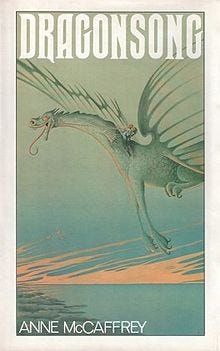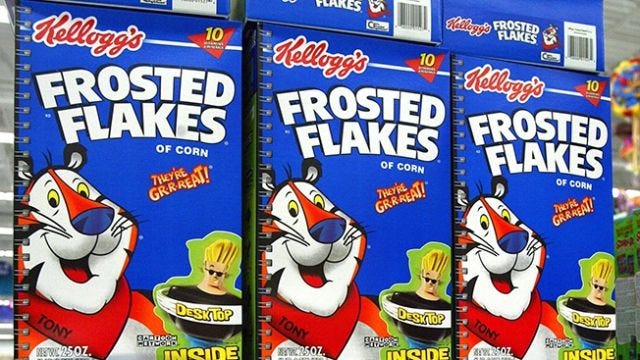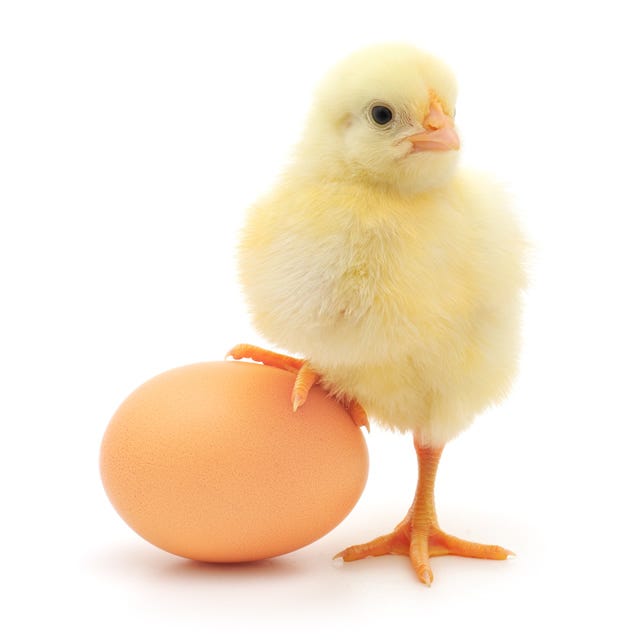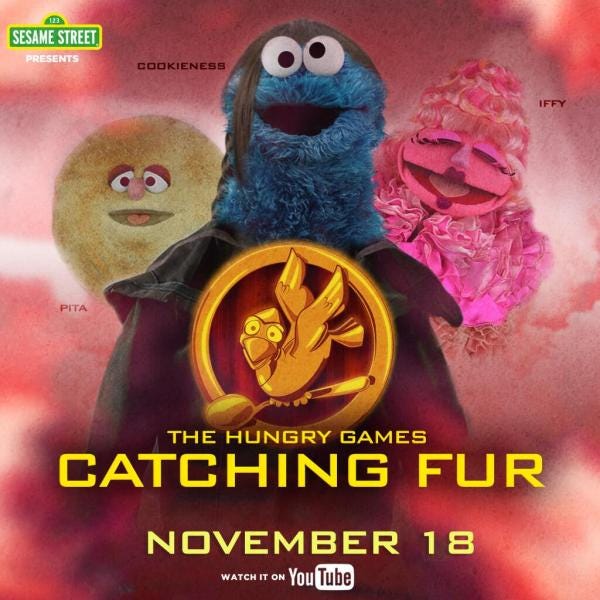So What, Who Cares (vol 2, issue 79) What's the matter with Big Food
Hello! I have good news for all of you who are not Netflix subscribers: alert reader @AntonyJohnston pointed me to a free copy of Georges Méliès's Le voyage dans la Lune in color (vol 2, issue 78). Go watch!

While we're on the subject of @AntonyJohnston. he hosts a podcast called Unjustly Maligned, in which people come on the show to defend pop culture that has come under fire (deservedly or no). And I was on Unjustly Maligned #14, talking about Anne McCaffrey's Dragonriders of Pern, so have a listen for Antony's excellent hosting and many stories about my painfully nerdy adolescence. (FYI, The Incomparable did an episode on dragons a few years back where we all wondered how the fewmet issue gets resolved on Pern.)
That lets me segue to other podcast-y news: The Incomparable episode #249, "Critical Batman Deficit," covers the TV season that just ended and it features a cast of thousands. So you can either listen to it because we're all passionate about The Flash and Arrow and so on, or you can play it aloud and convince your neighbors you're throwing a rager.
And finally, @philipmichaels and I teamed up for Phil And Lisa Ruin The Movies episode #9, "Phil Ruins the Age of Ultron."
*
Big Food continues to have Big Problems. Back in February, I reported on the problems that companies like Campbell's and Kraft's are facing thanks to a one-two punch of shifting consumer tastes and nimble speciality grocers like Trader Joe's (vol 2, issue 29).

The story's only getting more juicy: Big Food's lost $18 billion in market share over the last five years, according to report by Boston Consulting Group and IRI, and they can't rely on winning back customers at the grocer's -- not when organic brands like Hain Celestial count online-only distributor Amazon.com as one of their top distributors.
Organic sales still make up a tiny slice of the overall American food industry -- 4% of food sales, according to Earthbound Farm's Myra Goodman -- and given that "tiny slice" of a food industry is equivalent to $35.9 billion per year, according to the Organic Trade Association, one has to wonder: Is it really worth panicking over losing half that amount over 5 years? Kraft, Campbell's and General Mills seem to think so.
So what? Brace for a lot more packaged food touting its clean and wholesome bona fides. As Forbes reported:
Kraft Foods is removing synthetic colors and artificial preservatives from its flagship mac and cheese. Tyson has announced it is eliminating the use of human antibiotics in its chickens raised for meat. General Mills, which has already removed genetically modified organisms (GMOs) from its original Cheerios, has cut sugar by 25% in its Yoplait yogurt. All of these developments have happened in the past half year.

However, this is still a story about shifting American tastes and what everyone should remember is that tastes can shift back with the proper inducement (i.e. media campaigns, social pressure and economic inducement). The looming egg crisis might be an opportunity for Big Food to demonstrate its shelf-stable reliability in the face of unpredictable and pricey fresh-food inventories.
Who cares? Big Food, because even if they can flog the whole "You know, there's not going to be a shortage of Pop Tarts, UNLIKE EGGS" campaign, they do have a much bigger problem: Consumers do not trust Big Food.
It doesn't help when, in an age of easy social-media dissemination, it's easy to find which big-food companies own organic brands that are trying to position themselves as small, independent and authentic.

And it doesn't help when Big Food is cagey about what they're cramming in our gullets. We've already covered the whole "Maybe your caramel coloring is filled with a cancer-causing chemical, we'll never tell!" angle, as endorsed by the FDA (vol 2, issue 25), and now there's a report on the Flavor and Extract Manufacturers Association, where the upshot is: This group is not forthcoming about the chemical elements or safety data associated with the compounds that flavor our foods, and they're operating this way with the U.S. government's blessing.
Is it any wonder people are finding it less stressful to follow the Michael Pollan edicts to "Eat food. Not too much. Mostly plants" and "Don’t eat anything your great-grandmother wouldn’t recognize as food"? When we can't count on Big Food to clearly and accurately label what goes into their offerings (Big Food is currently backing a Congressional bill that would prohibit the states from requiring their own food labels calling out GMOs), it's no wonder Great-grandma's diet looks so much less stressful.
*
Your pop culture moment of the day: The University of Maryland’s Melissa Kearney and Wellesley College’s Phillip Levine found that Sesame Street may have cognitive benefits equivalent to that of enrolling a child in Head Start:
Toddlers who watched the show — especially African American children, boys, and kids from low-income areas — were much more likely to keep up with an appropriate grade level for their age.
The researchers credit compelling story-telling and skillful deployment of preschool-level lessons in each vignette, a conclusion the Washington Post got directly from the Sesame Workshop:
"Storytelling is critical," Jennifer Kotler Clarke, Sesame's vice president for research and evaluation, told [Jim Tankersley]. "If you organize information in storytelling, children are more likely to learn it. And adults are, too."
Also worth noting: the story paces are much speedier these days and talky pieces (like Bert & Ernie sketches from the 1970s) just don't work with preschoolers who have been raised with access to smartphones and tablets.

Also also worth noting: Research shows that Cookie Monster is the most popular muppet. Perhaps this explains why he's the breakout parody star in such movie spoofs as The Aveggies: Age of Bon-Bon, Les Mousserables and The Hungry Games: Catching Fur. It certainly shouldn't surprise anyone that the chaos muppets have are the vocal majority.
(I will never stop laughing every time I watch the TV spoofs, especially Sons of Poetry -- where Sons of Anarchy meet Robert Barrett and Elizabeth Barrett Browning -- and True Mud.)
The recent sprinkling of media coverage around the show isn't particularly surprising if you've read Michael Davis's Street Gang: The Complete History of Sesame Street.
Combining reportage and television history, the book demonstrates exactly what kind of world Sesame Street came into -- i.e. one where Mississippi's quickly-appointed State Commission for Educational Television voted to block broadcasting Sesame Street because in 1970, "Mississippi was not yet ready" for a program featuring black, white and Latino children playing together. And the book details how the Children's Television Workshop has reinvented the show to keep up with societal shifts and new challenges.
I came away with a tremendous amount of respect for the people who have poured their lives into the show, and my only complaint is that Davis tends to make any woman who looks critically at Sesame Street into a Straw Feminist In The Closet. Still -- the overall book is a feat of reporting and a great way to understand what an everyday miracle Sesame Street is.
*
Are there typos? I apologize in advance. The only editing class I did not get an A in was copyediting.
Did you miss an issue of So What, Who Cares? The archive is here. If you really like So What, Who Cares?, tell a friend to subscribe. And do not hesitate to hit me up via email or on Twitter. Thanks for reading!

